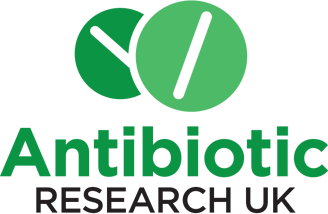England’s Chief Medical Officer, Professor Dame Sally Davies, has reiterated her warning of a “post-antibiotic apocalypse” this month, as she encouraged world leaders to tackle the pressing threat of resistance to antibiotics.
Addressing health officials in Berlin, Dame Sally said that if antibiotics lose their effectiveness, it would spell “the end of modern medicine”. Without the drugs used to fight infections, common medical interventions such as caesarean sections, cancer treatments and hip replacements would become incredibly risky and transplant medicine would be a thing of the past, she said.
“We really are facing, if we don’t take action now, a dreadful post-antibiotic apocalypse. I don’t want to say to my children that I didn’t do my best to protect them and their children,” Davies said. “The world is taking notice, but we are not where we should be. Action has been too slow and we need to up the ante,” added Professor Davies.
The UK reinforced its commitment to tackling drug-resistant infections, including a ground-breaking new project, the Global Burden of Disease AMR project, which will gather and publish data on the impact of superbugs globally. Over the next four years, the project aims to generate the world’s largest dataset on drug resistance, and will serve as a global evidence base.
This commitment came at a milestone ‘Call to Action’ conference in Berlin, where global experts, national Governments, multilateral institutions, civil society and public and private funders, came together to accelerate real, tangible action.
The message from Dame Sally Davies, at ANTRUK’s Annual Lecture and the conference in Berlin, is that while political commitments have been made, translating these into coordinated and concrete actions must happen urgently.
Professor Dame Sally Davies, Chief Medical Officer said:
“Drug-resistant superbugs are already killing hundreds of thousands of people around the world, and this problem is only getting worse. The world is taking notice, and huge strides have been made recently – but tangible action has been far too slow to follow. We need to up the ante.” She added: “If we are to target our efforts effectively, we need to know where the problems are so it does not undermine global progress. New approaches to convene global experts are crucial and provide some much-needed direction.”
Commenting on the news, Antibiotic Research UK’s CEO, Professor Colin Garner stated: “The UK government’s involvement in the Global Burden of Disease AMR project is great news as it seeks to gather and publish data on the impact of superbugs globally. This will help support appropriate public policy and decision making.
“Progress is being made and it’s commendable that previously separate bodies are coming together to fight AMR; efforts by just one sector cannot prevent or eliminate the problem. Time is not on our side, and many more changes still need to be implemented. A UK Antibiotic Resistance Register needs to be created in the same way that we have regional cancer registers, and mechanisms to incentivise R&D from the pharmaceutical industry need to be implemented. In addition, Third Sector organisations such as ours must be part of the national solution in tackling resistance.”
Antibiotic Research UK has been involved in commentary on this story, with ANTRUK Chief Executive Professor Colin Garner, ANTRUK ambassador Emily Morris, and ANTRUK Science Committee Chair Professor Chris Dowson, all featuring in interviews and news articles.
Amongst other interviews, Professor Garner appeared on Sky News, BBC Radio 5 Live, and TalkRadio; Professor Dowson spoke on Channel 5 News and BBC Radio London; Emily Morris was interviewed on the BBC’s Victoria Derbyshire programme, ITV’s Good Morning Britain, and Sky News. A total of twenty interviews, the majority with the BBC, took place as a result of the news, and 17 written articles were published referencing Antibiotic Research UK.
Did you hear about us on the news and want to get involved? Click the ‘Support Us’ button from the panel above and explore how you can help.
If like Emily, you’ve suffered from a superbug or antibiotic resistance infection, then you can get in touch with us here.




